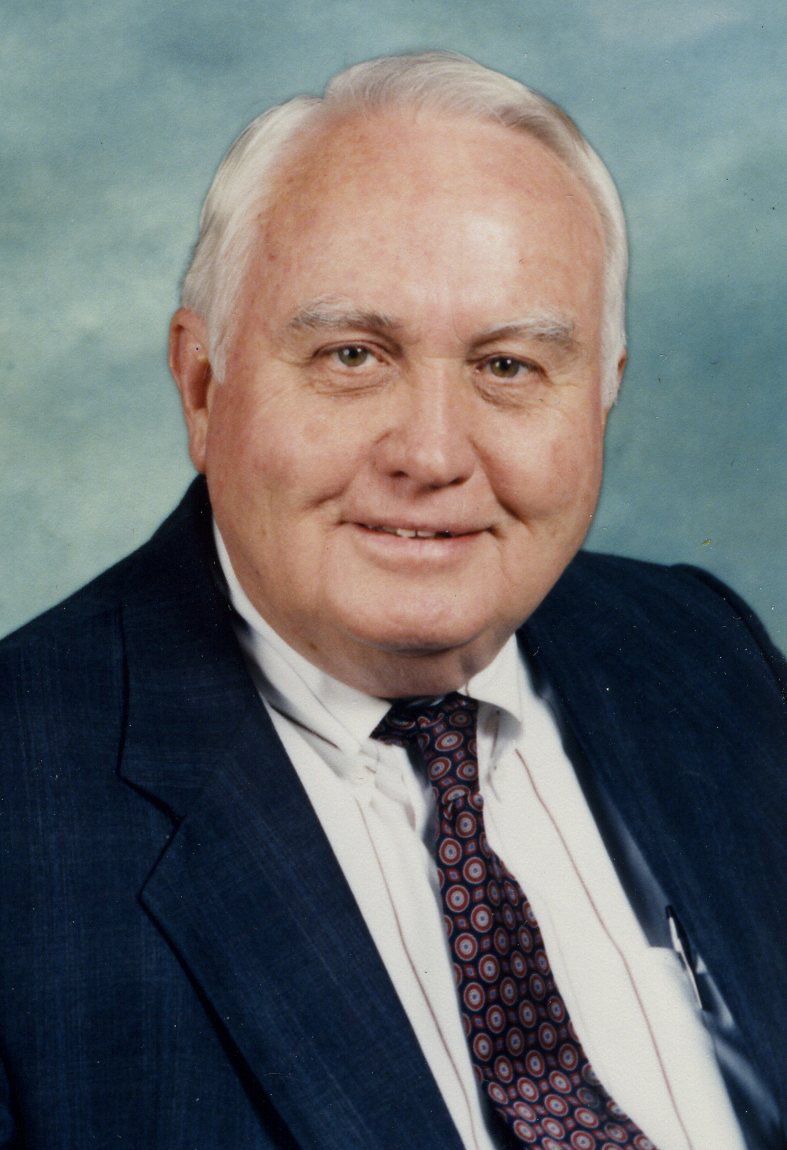Retired Tennessee Court of Appeals Chief Judge Herschel P. Franks, a Signal Mountain attorney whose 42-year tenure on the bench was one of the longest in state history and whose landmark 1976 decision opened the way for ministers to serve in the state Legislature, died Thursday.
Franks, a Hamilton County Chancery court judge before his 1978 appointment to the appeals court, was 89. He retired in 2012.
"Judge Franks was a great example of a fine judge and an outstanding person. He was a true public servant," said Tennessee Supreme Court Chief Justice Jeff Bivins, noting his "commitment to the rule of law and his compassion and care for the citizens of this state will be sorely missed."
Chattanooga attorney Jerry Summers said Franks was "one of those judges that really had guts and weren't afraid."
Summers recalled how when a then-Chattanooga City judge was issuing fines beyond what was allowable to do as a municipal judge, Franks waded in with a ruling halting the practice.
A native of Hardin County in West Tennessee, Franks grew up near Savannah during the Great Depression. He later attended the University of Tennessee at Martin, then a junior college. While there, he joined the Tennessee National Guard and in 1950 joined the United States Air Force and became interested in the law while serving in England.
He graduated from University of Tennessee College of Law in 1957 and two years later joined a Chattanooga law firm, primarily practicing corporate defense work but also doing pro bono criminal work. He later served as president of the Chattanooga Bar Association.
In 1970 he was appointed to a vacancy on the 11th Judicial District Chancery Court in Hamilton County.
"We were always griping about how lawyers were treated in court," he said in the 2012 Tennessee Bar Foundation interview. "I thought if I get to be a judge, I don't think I'd treat the lawyers like that. That was part of my motivation."
In 1976, the Tennessee Supreme Court was sued by a group of Chattanooga lawyers for its decision to require them to pay a disciplinary fee to practice. As chancellor in Hamilton County, Judge Franks was assigned the case.
"I thought gosh, this is an unusual situation having the members of the Supreme Court as defendants in your court," he later recalled.
The state Supreme Court ordered the case be dismissed. Franks refused. The Supreme Court eventually enjoined him from further considering the case. He said in the interview that he still saw it as a "moral victory" since he never dismissed the litigation.
But Franks made a decision in another case that eventually went up to the U.S. Supreme Court. In that matter, he was upheld and it has had an impact on Tennessee politics to this day.
The case, McDaniel v. Paty, was brought by the Rev. Paul McDaniel after he was prohibited from running as a candidate for the state's 1977 Constitutional Convention. That was due to the Tennessee Constitution's ban on ministers serving in the General Assembly, and consequently as delegates to state constitutional conventions.
Citing the 14th Amendment of the U.S. Constitution, Franks ruled the state law violated McDaniel's rights. The Tennessee Supreme Court overruled him. It later went before the U.S. Supreme Court of the United States, where justices unanimously ruled the Tennessee constitution's ban on ministers serving in the General Assembly was unconstitutional.
At least three ministers or pastors now serve there. One, Rep. Jerry Sexton, R-Bean Station, is the sponsor of a controversial bill that declares the "Holy Bible" state government's official book. He passed a similar measure several years ago, only to see it vetoed by then-Gov. Bill Haslam. Sexton is back not only with that bill but also a resolution to remove the now-obsolete ban on ministers from the Tennessee Constitution.
In a statement, Judge D. Michael Swiney, current Chief Judge of the Tennessee Court of Appeals, "not only a great Chief Judge for the Court of Appeals, he served as a mentor for every new judge that came on the Court while he served. What the Court is today is a direct result of Judge Frank's guidance and his example from which we all benefited and learned."
According to Franks' Dignity Memorial obituary, his survivors include his wife of 30 years, Judy Wood Franks; daughter Ramona Hagmaier; a granddaughter; two stepdaughters and their children. He will be buried at Chattanooga National Cemetery. A celebration of life and memorial will be at a later date.
In lieu of flowers, contributions may be made to the Pilgrim Congregational Church or the Chattanooga Food Bank.
Contact Andy Sher at asher@timesfreepress.com.

